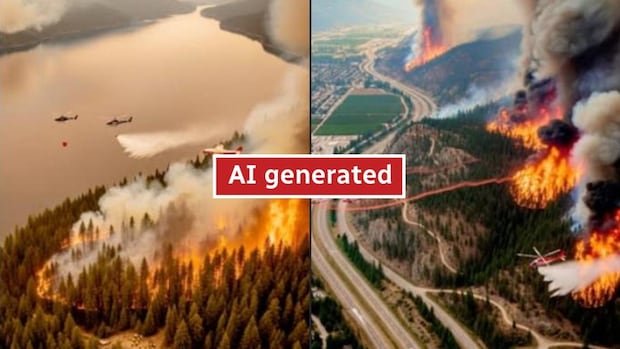The B.C. Wildfire Service has raised concerns about the increase in AI-generated wildfire images, warning that they are fueling online misinformation and heightening tense situations. Two such images were recently shared on social media, inaccurately depicting fire scenarios according to the service.
Despite dealing with misinformation and conspiracy theories for years, the wildfire service is now facing a new challenge with the proliferation of AI images that could potentially mislead individuals in emergency situations. To combat this, the service urges the public to download its app, subscribe to local alert systems, and rely on reputable sources to avoid falling victim to false information.
Fire information officer Jean Strong emphasized the importance of accuracy in emergency information dissemination, as it directly impacts people’s safety and decision-making during crises. Strong noted that this year’s AI-generated images often exaggerate the severity of wildfires in B.C., instilling fear among the public.
With hundreds already displaced due to wildfires across British Columbia and more than 100 active blazes reported, the situation remains critical. The service highlighted the potential danger of misleading images, mentioning that they could either amplify fear or downplay the severity of a wildfire, leading to potentially harmful outcomes.
Muhammad Abdul-Mageed, a Canada Research Chair at the University of B.C., emphasized the growing sophistication of AI image tools, making it increasingly challenging to discern between real and AI-generated images. He warned of the potential for such technology to spread misinformation on critical issues like climate change and wildfires.
Abdul-Mageed stressed the need for caution when sharing information online, especially in times of crisis, as the reliability of AI fake detection tools can sometimes be questionable. It is crucial for individuals to exercise discretion before disseminating unverified information online to prevent potential harm or confusion.

